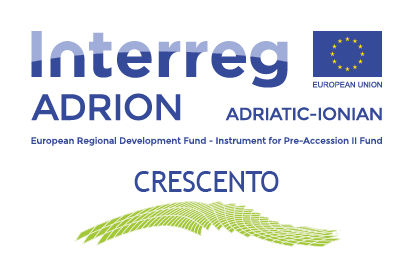Global demand for resources is increasing and significant pressures are causing environmental degradation, consuming 100 billion tons of materials annually, of which only 8.6% is recovered, according to the 2021 Circularity Gap Report. Moving from linear economy models to circular economy ones seems to be the only way to address both short and long-term sustainability challenges: keeping resources in the economy even beyond the end of the product's life cycle, reducing waste through reuse, recycling, or remanufacturing. The above change in the economic model is not simple and requires profound modifications in the entire value chain: products must be designed in a sustainable way and easily usable in a circular economy paradigm, new business and market models are needed, innovation is requested to turn waste into resources and consumer behavior has to change significantly. The entire quadruple helix needs to be involved in transforming the way businesses, academia & research, decision-making and civil society operate, as well as new skills to facilitate this transition.
CRESCENTO (https://crescento.adrioninterreg.eu/) addresses these challenges by setting up an ADRION transnational cooperation network on the circular economy, defining an education and training program and developing a joint master's program on circular economy. The project is based on a partnership of 11 partners from all over the ADRION area (4 ERDF and 4 IPA countries), thus covering the entire EUSAIR macro-area. A network of more than 60 stakeholders from academia, research, business and policymakers is expected.
The CRESCENTO Summer School on Circular Economy is a training activity in the form of a Joint Summer School which aims to educate and inspire students, professionals, and enthusiasts about the principles and practices of a circular economy, fostering innovation and collaboration towards a sustainable future.
It will provide general training on what Circular Economy is, what are the odds behind the paradigm shift from a linear to a circular economic model, what are opportunities arise for specific sectors and the economy overall, what are skills needed to support this transition and what are successful experiences and good practices in the field. Overall training material will be available on the CRESCENTO Moodle platform.
A full time, weekend physical lessons and workshops are envisaged as Summer School starting point, followed by the preparation of specific projects to be delivered in two weeks by attendees in teams of 1 – 2 persons. A final pitching event will be organized for the presentation of the outcomes of the project on a second weekend.
A certificate of attendance will be provided to the participants.
Duration: 2 phases of 2-days tutoring (1 and 2 September and 11 and 12 September). Project proposals will be prepared by attendees for the pitching event from 1 to 12 September.
Target Audience: University students, researchers, public officials and business employees, entrepreneurs.
Registration fee: Free
Contributing institutions:
- University of the Aegean, Greece
- Politecnico di Milano, Italy

